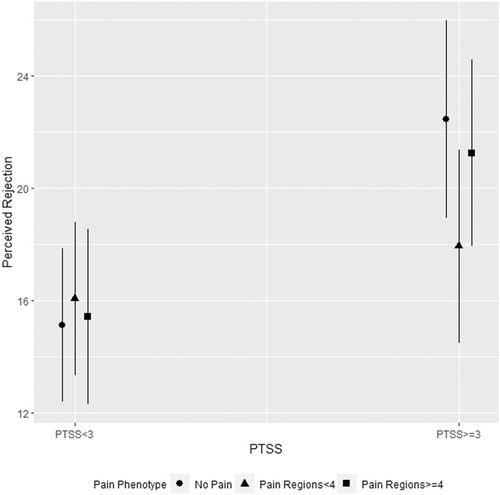Chronic pain and posttraumatic stress symptoms frequently co-occur. Both may be associated with how individuals perceive stimuli; yet, to our knowledge, studies have not considered their joint effects on the perception of stimuli. In the present study, we examined main and interactive effects of chronic pain phenotype (no chronic pain; <4 regions of chronic pain; ≥4 regions of chronic pain) and high posttraumatic stress symptoms (>3 symptoms) on sensory sensitivity (i.e., external sensory sensitivity and somatic awareness) and sensitivity to social stimuli (i.e., hostility, perceived rejection, and rejection sensitivity). Adult patients with a self-reported history of trauma or abuse (n = 305) completed across-sectional, online survey. A chronic pain phenotype indicating ≥4 regions of chronic pain exhibited significant main effects on somatic awareness and hostility. High posttraumatic stress symptoms exhibited significant main effects on all sensory and social variables. An interaction between chronic pain phenotype and high posttraumatic stress symptoms was also found for perceived rejection, such that the association between high posttraumatic stress symptoms and higher perceived rejection was buffered for individuals with <4 regions of chronic pain. The findings suggest that both chronic pain phenotype, particularly ≥4 regions of chronic pain, and high posttraumatic stress symptoms are related to the perception of sensory and social stimuli. These findings may be important for understanding the impact of each condition on functioning and well-being, as well as how to appropriately treat and manage symptoms.


